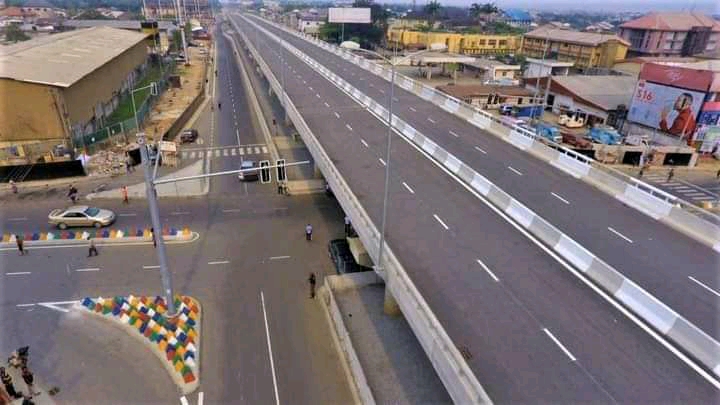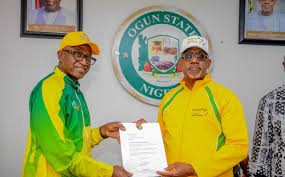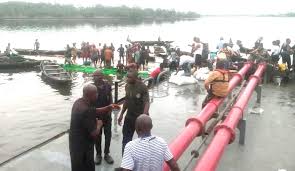Editorial
Wike’s Uncommon Transformation

This week promises to be a busy and exciting one in Rivers State, particularly in Obio/Akpor Local Government Area and Port Harcourt City Local Government Area, as several projects have been lined up for commissioning and flag-off by the Governor NyesomWike administration.
Among those for commissioning include the Okoro-Nu-Odo Flyover, the Rumuogba1 and 2 Flyover, the GRA Phase 2 Roads (Tombia Crescent and Opobo Crescent) and the Government House Clinic/Administrative Building.
Those for flag-off are Nkpolu Oroworukwo Flyover and Rumu-Kalagbor Flyover while the state government would also sign a contract with construction giant, Julius Berger on the new flyovers at Nkpolu Oroworukwu and Rumu-Kalagbor Junctions.
The commissioning ceremonies open today with the commissioning of the Okoro-Nu-Odo Flyover by no less a personality than former Governor of Cross River State, Mr Donald Duke while tomorrow would be the turn of former Governor of Kano State, Senator Rabiu Musa Kwankwaso who is billed to commission the Rumuogba 1 and 2 Flyover.
Former Governor of Katsina State, Alhaji Ibrahim Shema is expected to commission on Wednesday GRA Phase 2 Roads (Tombia Crescent and Opobo Crescent while former Senate President, Dr Bukuola Saraki will take his turn on Thursday and commission the New Government House Clinic/Administrative Building.
Earlier, that same day, the contract for the two flyovers at Ikwerre Road/Olu Obasanjo (Ikokwu) and Aba Road/Rumu-Kalagbor (Waterlines) will be signed with Julius Berger.
On Friday, the Ikwerre Road/Olu Obasanjo (Ikokwu) Flyover will be flagged off by the South-South Zonal Vice Chairman of Peoples Democratic Party (PDP), Chief Dan Orbih while the week long activities will be rounded off on Saturday with the flag-off of the Aba Road/Rumu-Kalagbor (Waterlines) flyover.
Among these landmark projects, the Okoro-Nu-Odo Flyover and the Rumuogba 1 and 2 Flyover projects clearly stand out and have continued to elicit applause and accolades for the Wike administration from well-meaning Nigerians and residents of the state.
The Okoro-Nu-Odo Flyover in particular is another beautiful edifice which has added an uncommon aesthetic to the Garden City and its environs, and the unveiling of the project today underlines another dream fulfilled by the Wike administration.
In fact, the socio-economic importance of this project cannot be over-emphasised as it will once again throw open the floodgates of economic activities of the popular Rumuokoro axis of the state capital.
The flyover would go a long way in tackling the grave traffic bottleneck for which the Rumuokoro Junction is notorious. There is no doubt that it would restore life to the area that has been dormant following a prolonged lockdown. To say that the entire people of Rivers State are better off with this project is to state the obvious, as it would definitely go a long way to improve their socio-economic wellbeing. Indeed stepping into this beautiful edifice evokes a sense of glee and satisfaction in one’s psyche.
Then, the Rumuogba 1 and 2 Flyover completes the story of a well-executed project for which the Wike administration is very famous. Its beauty also sparkles.
This project, in a way, decongests traffic along the busy Port Harcourt-Aba Road and equally opens up the state for renewed economic activities for those coming into the state.
The truth is that these two flyovers will bring to three the flyover bridges already commissioned by the present administration in a record time. The Rebisi Flyover which also belongs to a class of its own was recently commissioned by this administration even as three others including Rumuola Flyover, GRA Flyover and Kaduna Street Flyover are still under construction. The signing of the contract for the construction of the Waterlines and Ikokwu Junctions flyovers would bring to eight the number of the flyover projects executed by the Wike administration during the second term alone. This is, indeed, a laudable feat.
It would be recalled that the administration had in January commissioned several other road projects in many parts of the state including the Abonnema Ring Road in Akuku-Toru Local Government Area, Bolo internal roads in Ogu/Bolo Local Government Area, Isiodu Road in Emohua Local Government Area, Isiokpo internal roads Phase 2 in Ikwerre Local Government Area, Aluu-Rumuekini Road in Obio/Akpor Local Government Area, Mother and Child Hospital, Real Madrid Academy, the 16.6 kilometre dual carriage Saakpenwa/ Bori Highway in Khana Local Government Area, the Sime-Nonwa-Kira Road in Tai Local Government Area, among a host of other projects.
As it is characteristic of the Wike administration, top personalities drawn from several parts of the country are often invited to commission projects in the State. Thus, just as the state would witness a flurry of activities, it would also play host to several other Nigerians, beginning from today.
The Tide joins other well-meaning Rivers men and women, young and old as well as Nigerians, corporate organisations and individuals to congratulate and commend Governor Wike on this auspicious occasion of commissioning and flag-off of projects by his administration.
This gesture, indeed, underscores the determination of the Governor to leave the state better then he met it and also shows his undying love for the State.
We are elated that the present administration is leaving no stone unturned in genuinely developing the State in spite of the serious economic downturn in the country. To say that the present administration is rapidly transforming the landscape of the State with its giant development strides is to state the obvious. Within a short space of time, Governor Wike has turned the entire state to a huge construction site so much so that whichever direction one is coming from, massive development projects are either going on or have been completed.
Furthermore, the NEW Rivers Vision of the Wike administration is envisioned by the problems of urbanisation and population explosion, which definitely calls for the renewal of old infrastructures to transcend our old Garden City status in line with current development realities. Little wonder that the Governor is nicknamed, Mr Projects. The development projects on ground so far are manifestation of an uncommon transformation of the state which has made it a destination of choice for investors.
However, as the Governor continues to leave his footprints on the sands of time, critical areas of need which require urgent attention should also be given consideration.
We, therefore, urge all Rivers people to rally round the Governor at this critical time by giving him all the necessary support and encouragement to take the state to the envisaged promised land with a view to making them (the people) happy and contented people, bonded by common aspirations and goals
Editorial
End The Senseless Killings

Nigeria faces a critical crisis as rampant killings undermine our nationhood. The diminishing value of human life has led to a troubling desensitisation, where violence fails to provoke necessary outrage. What was once shocking has now become commonplace, posing a significant threat to our society. Recent statistics play up a grim reality, with over 100 lives lost to violence in various states in just the past few weeks.
In Plateau State, over 62 innocent people were killed by suspected land-grabbers in Bokkos Local Government Area, leaving the community in shock and survivors traumatized. Governor Caleb Muftwang labeled the attacks as “genocide,” showing the grave threat to these communities. Despite visits from top security officials, no suspects have been apprehended, contrasting sharply with responses in other incidents.
Kebbi, Benue, and Sokoto States have not been spared this wave of bloodshed. In Kebbi, Lakurawa terrorists attacked Morai village in Augie LGA, killing at least 13 vigilante members who had dedicated themselves to protecting their community. Meanwhile, in Sokoto, 12 people fell to the bullets of bandits allegedly led by the notorious kingpin Bello Turji during their attack on Lugu town in Isa LGA, reportedly while returning from a Sallah visit to a nearby community. The latest mass killings have claimed nearly 150 lives in Benue, Plateau, and Kwara states. This replicates a similar pattern over the past two decades.
The unfortunate incident in Uromi, Edo State, presents a different dimension to the violence, where about 16 persons traveling for Eid-el-Fitri celebrations were brutally murdered by vigilante members who suspected them of being kidnappers. While vigilantism represents a dangerous tendency born of desperation, it is equally concerning that unlike countless other killings where perpetrators escape justice, authorities swiftly arrested nearly 20 suspects in this case, creating the impression of selective justice based on who the victims are or where they come from.
The differing responses to these incidents demonstrate inconsistency in valuing Nigerian lives. When authorities show uneven dedication to justice, it implies that some lives are prioritised over others, undermining the social contract and harming national unity. The quick arrests after the Uromi incident illustrate that efficient action is possible, prompting questions about the lack of similar efforts in other cases of mass violence.
In many civilised nations, governments implement measures to prevent senseless killings and deliver swift justice. In contrast, Nigeria appears to be encouraging its citizens to accept violence as a normal part of life. This acceptance signifies a troublous neglect of the state’s duty to protect its people, resulting in a rise in vigilantism as citizens seek their own help when they feel abandoned.
The regularity with which Nigerians meet horrendous ends and the speed with which the nation moves on speaks to a profound moral crisis at the heart of our society. That such relentless killings occur in a country not officially at war is both incomprehensible and deeply disturbing. While many nations struggle with sporadic acts of violence, the scale and frequency of Nigeria’s bloodshed set it apart as a particularly discomforting case study in failed security governance, requiring urgent intervention before the situation deteriorates beyond remedy.
Though Boko Haram-type terrorism represents a global challenge that many countries grapple with, Nigeria’s situation is made more terrifying by the homegrown nature of much of its violence. The involvement of both Nigerian citizens and invaders from neighbouring countries, apparently intent on permanent resettlement through violent land grabbing, adds complex dimensions to an already dire security situation that demands comprehensive solutions.
This ugly narrative must change if Nigeria is to survive as a cohesive entity. The government must demonstrate unwavering commitment to protecting every Nigerian life regardless of ethnicity, religion, or region. The perceived prioritisation of foreign invaders and their livestock due to blood relationships between these invaders and some political leaders or security officials will only accelerate the unraveling of our national fabric if allowed to continue unchecked, fostering deeper divisions in an already fragmented society.
Nigerian political leadership must develop the necessary political will and courage to confront these challenges head-on. President Bola Tinubu has a historic opportunity to transform Nigeria’s reputation by placing a premium on human life and ensuring that security agencies fulfil their mandate to protect all citizens equally. Addressing the root causes of violence—whether economic, political, or social—must become a central priority of governance at all levels if sustainable peace is to be achieved.
The disquieting statement by the Director-General of Department of State Services (DSS) that Nigerians should defend themselves against terrorism sparked public outrage. This accentuates a worrisome abdication of duty and deepening distrust in security institutions. Further, it contradicts Lt. Gen. Olufemi Olatubosun Oluyede’s (Acting Chief of Army Staff) promise of justice for the Plateau killings—assurances many view skeptically due to past inaction.
For Nigeria to move forward, justice must be fair and consistent across the country. Every life lost to violence warrants thorough investigation, regardless of the victim’s background. Our nation’s progress hinges on comprehensive security measures that not only address immediate threats but also the root causes of violence, such as economic opportunity, political inclusion, resource equity, and transparent governance. Without these integrated solutions, we risk merely treating symptoms while the underlying issues persist, menacing both individual lives and the nation’s unity and potential.
Editorial
May Day: Let Nigerian Workers Breathe

Nigerian workers observed this year’s May Day on the 1st of May in a somber tone, offering little cause
for celebration. The purpose of this day is to acknowledge the important role of workers in contributing to the growth and development of society. The occasion is celebrated with tremendous enthusiasm across the world. Ever since achieving independence, the labour movement in the country has persistently raised concerns regarding the country’s protracted battle for effective governance.
This year’s May Day theme, “Reclaiming the Civic Space in the Midst of Economic Hardship,” underscores a critical issue facing societies worldwide. In an era marked by rising living costs, stagnant wages, and growing unemployment, economic hardship has become a pervasive challenge impacting individuals, families, and entire communities. Against this backdrop, the theme serves as both a rallying cry and a call to action—urging workers to assert their rights, amplify their voices, and actively participate in civic life. It highlights the pressing need to protect and expand civic space even in the face of adversity.
A confluence of economic woes plagues Nigerian workers, which paints a bleak picture of their current realities. High unemployment casts a long shadow, while hyperinflation erodes purchasing power and deepens financial insecurity. This dire situation is further exacerbated by pervasive insecurity, widening income inequality, and the persistent issue of abysmally low wages that fail to meet basic needs. The hardships have only intensified following President Bola Tinubu’s policy decisions to remove petrol subsidies and allow the naira to float, further straining the already stretched resources of ordinary Nigerian workers.
The cost-of-living crisis in the country is a flinty reality for its workforce, exacerbated by the persistent issues of low wages and rising unemployment. While the official unemployment rate may appear to have drastically improved to 5.0 per cent after the National Bureau of Statistics’ rebasing in 2023, many view this figure with skepticism, remembering the previous rate of 33.3 per cent. The reality for many Nigerians is far more challenging, particularly for young people, who face an unemployment rate of 18 per cent.
Nigerian workers are facing a severe economic crisis that is impacting every aspect of their lives. Rampant inflation, eroding purchasing power, with food inflation hitting a staggering level. This dramatic surge in prices is outpacing wage growth, leaving many struggling to afford basic necessities. The volatile exchange rate, with the naira fluctuating wildly against the dollar, adds another layer of instability.
The nation’s economy faces a precarious situation, teetering on the brink of crisis. With a staggering 98 per cent of Federal Government revenue dedicated to debt servicing, very little remains for essential public services and infrastructure development. This dire fiscal constraint is compounded by the country’s high crude oil production costs, severely limiting profitability and undermining the oil sector’s potential contribution to national revenue.
Simultaneously, the economy is suffering from a sharp decline in Foreign Direct Investment (FDI), signalling a loss of investor confidence and further exacerbating the economic downturn. The exorbitant cost of governance acts as another significant drain on public finances, diverting resources away from crucial areas like healthcare, education, and infrastructure. Additionally, many state governments are unable to implement the current 70,000 minimum wage. Their usual excuse is that the resources are not there. Several of them owe salaries and pensions.
Workers are notably disadvantaged in terms of their understanding and ability to avail themselves of middle-class securities and privileges. It is observed that basic amenities such as family vacations, social security, health insurance, and mortgage loans, which are common in other parts of the world, are considered to be a luxury in our country. As a result, workers are at risk of being poor, and this implies that they are only a paycheque away from falling into abject poverty.
While public sector job opportunities are finite, a favourable environment can enable the private sector to generate additional employment. The Nigeria Labour Congress and Trade Union Congress should unite to advocate for a transparent, vibrant private-led economy that creates jobs and prosperity for all workers. Governments at all levels should enhance workers’ welfare by operating efficient administrations based on contemporary business principles. State governors must make timely payment of salaries and pensions their priority.
A suitable work environment, and the provision of a living wage, should be given utmost priority by all tiers of government. The growing number of strikes across Nigeria underscores the urgent need for the authorities to tackle the problem. It is distressing that the national minimum wage in our country is below the estimated monthly maintenance cost of a typical pet dog in the United Kingdom.
This year’s May Day presents an opportunity for both federal and state governments to tackle the increasing unemployment rates across the nation by formulating effective strategies aimed at generating additional job opportunities. The authorities can expedite their commitment to assist millions of Nigerians in breaking free from poverty by creating additional job opportunities within the agriculture sector, which possesses the capacity to employ a large number of individuals.
To strengthen its economic stability, the Nigerian government should actively seek to decrease its dependence on crude oil. Nigeria has the opportunity to build a stronger financial future by directing resources towards diversifying its economy, especially through investments in the agricultural sector and solid mineral industries. Implementing this well-thought-out strategy has the potential to strengthen economic stability and foster sustainable practices across different industries. Moreover, they are required to deal with the rising levels of insecurity that result from clashes between herders and farmers, in addition to the problems associated with banditry and insurgency.
Editorial
Reforming Nigeria’s Prison Crises
The news of the Koton Karfe prison break in Kogi State, were met with a degree of resignation, underscores a
deeply troubling and recurrent crisis within Nigeria’s correctional system. The escape of 12 inmates, despite the swift recapture of a few, serves as a reminder of the vulnerabilities plaguing these facilities. This incident is not an isolated event, but rather the latest chapter in a well-documented history of prison breaches across the country.
From the Ikoyi riot in 2004 to the more recent, and devastating, escapes linked to the #EndSARS protests, the pattern is clear: Nigerian prisons are struggling to maintain security and prevent inmates from absconding. The chilling detail of an escaped inmate immediately murdering a witness further highlights the grave consequences and potential societal impact of these failures. The sheer scale of the problem, with over 5,238 inmates escaping during 15 jailbreaks in just two years, demands urgent and comprehensive attention.
Nigeria’s correctional system is in dire need of comprehensive and urgent reform, as evidenced by a confluence of deeply troubling issues. Senate President Godswill Akpabio’s observation regarding the increased frequency of jailbreaks since the transition from Nigeria Prisons Service to Nigeria Correctional Service highlights a systemic failure in maintaining secure facilities and rehabilitative programmes.
Furthermore, public trust is eroded by credibility crises, such as the alleged premature release of crossdresser Bobrisky in 2024, suggesting potential corruption or preferential treatment within the system. Adding to this already alarming situation is the overwhelming number of awaiting-trial inmates. Of the approximately 79,863 individuals currently incarcerated, a staggering 70 per cent (53,254) are yet to be convicted, pointing to severe inefficiencies and delays within the judicial process.
Perhaps, most damning is the revelation that children constitute a reported 30 per cent of the correctional population, a statistic that shames the nation and underscores the urgent need for age-appropriate justice and rehabilitation mechanisms, moving away from simply warehousing vulnerable youth within an overburdened and ineffective system.
The penal system, fundamentally toxic at its core, suffers from a crippling combination of systemic neglect and inherent flaws. Severely underfunded and perpetually overcrowded, prisons are often characterised by crumbling infrastructure, inadequate healthcare access, and absence of meaningful rehabilitation programmes. This confluence of detrimental factors cultivates an inhumane environment that actively undermines any potential for reform, instead fostering resentment and potentially hardening inmates into more serious criminals.
The strain on resources is painfully evident even in the most basic provisions, clearly illustrated by the inadequacy of feeding allowances. While the Federal Government’s recent increase of the daily allowance from N750 to N1,125 per inmate represents a step forward, it remains grossly insufficient to provide proper nutrition, showing the pervasive and deeply ingrained nature of the problem.
The justice system is plagued by systemic inefficiencies and ethical breaches, which creates a breeding ground for injustice and exacerbating societal problems. Unacceptable delays bog down the courts, compounded by archaic manual record-keeping systems that lead to lost files and impede the swift administration of justice. The integrity of evidence is further compromised by the alleged admission of forced confessions without proper verification, raising serious concerns about due process.
This flawed system allows for the regular arrest and detention of innocent individuals, who then suffer the indignity of prolonged incarceration. Compounding these issues are credible reports of dehumanising treatment of detainees, and allegations of collusion between security agents and magistrates to unlawfully prolong custody. These failures erode public trust and create a dangerous cycle, plausibly contributing to the rise in violent crime as prison escapees, potentially radicalised or hardened by their experiences, may resort to armed robbery, banditry, terrorism, and kidnapping.
The justice system’s deep-seated flaws cultivate a breeding ground for further crime and erode public safety. Crippled by systemic delays, reliance on antiquated manual processes, and the alarming acceptance of potentially coerced confessions, the system frequently fails to deliver justice and protect the innocent. The routine arrest of innocent individuals, followed by prolonged and unjust detention, points to a broken process ripe for exploitation. Dehumanising treatment within detention facilities, coupled with alleged collusion between security agents and magistrates to circumvent due process, fosters a climate of mistrust and fuels resentment.
This dysfunction extends beyond individual injustices, potentially contributing to broader societal problems. The escape of prisoners, some of whom may then engage in violent crimes demonstrates the tangible threat these failures pose to public safety. The tragic events at St. Francis Catholic Church in Owo, allegedly perpetrated by escaped ISWAP members, serve as an illustration of the devastating consequences stemming from a broken and permeable justice system.
The Nigerian prison system faces a multitude of challenges, but glimmers of hope shine through. The graduation of 1,229 inmates from the National Open University of Nigeria serves as powerful evidence of rehabilitation’s potential when individuals are afforded proper educational opportunities. To further bolster this potential and address systemic issues, a shift towards true federalism with devolved prison management is necessary.
If states and local government areas establish their own custodial centres, a decentralised system can be created where suspects are housed closer to their respective jurisdictions, potentially easing overcrowding at the federal level. Simultaneously, the Federal Government must deliver on its promise to construct new custodial centres and relocate existing ones from densely populated areas. This infrastructural improvement, coupled with a rigorous vetting process to prevent wrongful incarceration, will significantly reduce the burden on the system.
Nigeria should look beyond its borders, studying and adopting best practices in prison modernisation from countries with successful rehabilitation-focused correctional systems. By prioritising rehabilitation over mere punishment, and implementing strategic reforms, Nigeria can transform its correctional system into one that fosters positive change and contributes to a safer society.
-

 Sports5 days ago
Sports5 days agoPRIVATE SECTOR IS KEY TO GRASSROOTS SPORTS DEVELOPMENT – NSC Chairman
-

 Rivers4 days ago
Rivers4 days agoEmolga Administrator Tasks Stakeholders On Peace, Dev.
-

 News5 days ago
News5 days agoNSCDC, Navy, Army uncover illegal refinery in Anambra
-

 Opinion4 days ago
Opinion4 days agoNigeria’s Insecurity And Co-Existence
-

 Sports5 days ago
Sports5 days agoBrighton Whip Wolves 2-0
-

 Business4 days ago
Business4 days agoFG Bans Waivers For Threaded Pipes
-

 Sports5 days ago
Sports5 days ago22nd NSF: Ogun State Gov. Vows To Set benchmark
-

 Rivers4 days ago
Rivers4 days agoNavy Saves 99 Persons From Drowning In Rivers

